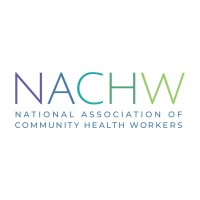Introduction: Why community health workers matter to child health practice.
The medical community long has recognized that health itself is not confined to the absence of disease or infirmity. Increasingly, child health’s role is being defined as advancing healthy, life-course development, including physical/medical, cognitive/developmental, social/relational, and emotional/behavioral development.
Over the past 20 plus years, there has been growing and compelling multi-disciplinary research evidence from The P.A.R.E.N.T.S. Science (Protective factors, Adverse childhood experiences, Resiliency, Epigenetics, Nurturing,Toxic stress, and Social determinants of health) on the need to use a comprehensive approach to advance child health. The Office of Disease Prevention and Health Promotion’s Healthy People 2030 emphasizes that child health is most dependent upon the safety, stability, and nurturing in the home environment, including the parent’s health and mental wellness.The pediatric field – in adoption of the principles of a medical home, the development of Bright Futures guidelines for well-child care, and the production of various reports on poverty, trauma and stress, and other topics – has further emphasized the need for child health practices to recognize and respond to non-medical conditions that affect child health. The challenge for the child health care community has been how best to address these needs in practice, recognizing that this work extends beyond medical expertise and response.
CHWs in the context of medical homes.
CHWs existed long before the modern medical care system. They have played a core role in almost every society as a repository of health information, a conveyor of handed-down remedies known for the treatment of ailments and disease, and a trusted voice on providing care and treatment. They have played community-building roles for immigrants in the United States, as exemplified in the settlement houses in the 1880s through 1920s.
CHWs are generally defined by the work they do and not by credentials they hold. According to the National Association of Community Health Workers, “Community Health Workers (CHWs) are frontline public health workers who are trusted members of and/or have an unusually close understanding of the community served. This trusting relationship enables CHWs to serve as a liaison/link/intermediary between health/social services and the community to facilitate access to services and improve the quality and cultural competence of service delivery. CHWs also build individual and community capacity by increasing health knowledge and self-sufficiency through a range of activities such as outreach, community education, informal counseling, social support and advocacy.”

